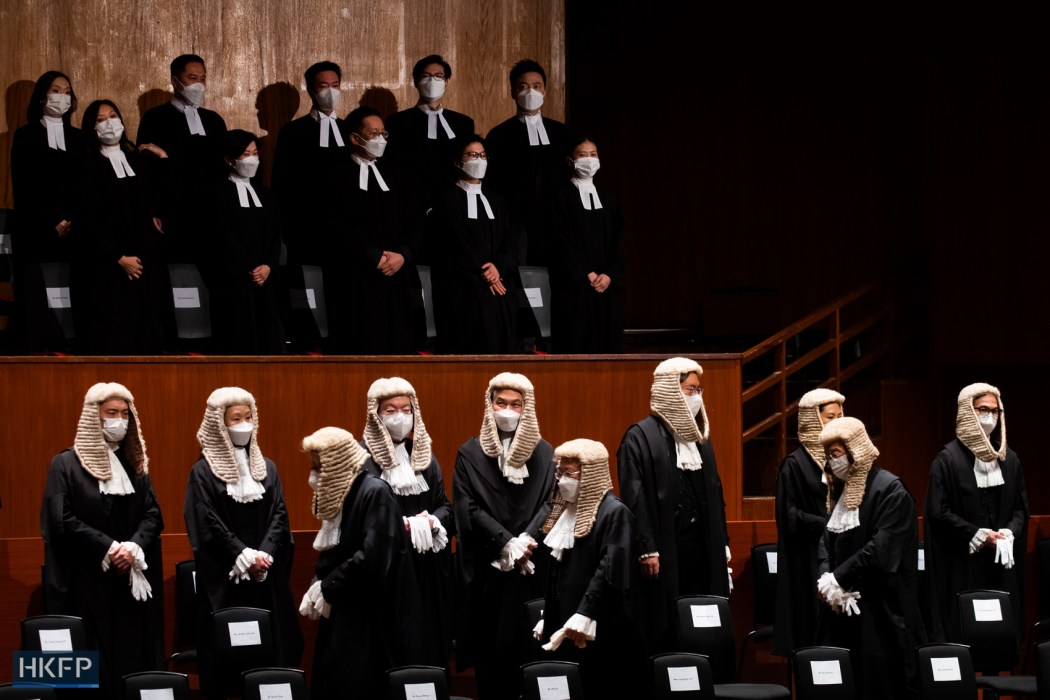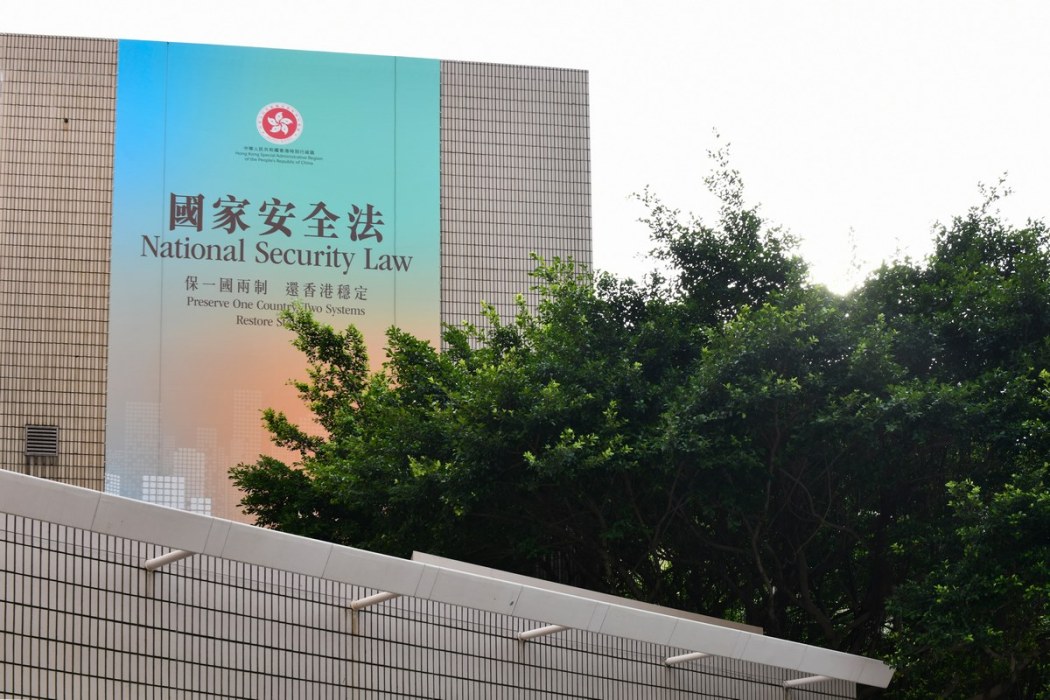The salaries of close to 200 judges and judicial officers in Hong Kong are set to rise by 3.62 per cent. The proposed increase came after a report by the Judicial Committee in July said national security cases and those linked to the 2019 protests posed “mounting challenges” to the Judiciary’s resources and manpower.

Advisors of Hong Kong leader John Lee approved the recommendation from the Judicial Committee to raise the wage of judges and judicial officers for 2023-24, with a retrospective effect from April 1, the government said in a press release on Wednesday. The pay rise remained subject to final approval from the Finance Committee of the Legislative Council.
The recommended wage hike of 3.62 per cent was decided based on a “basket of factors,” the government said, including the responsibility, working conditions and workload of judges compared to those of lawyers in private practice, as well as recruitment and retention in the Judiciary.
The security of tenure, the prestigious status and high esteem of the judicial offices, the ban against returning to private practice in the city, and the pay levels in the private and public sectors were also taken into consideration by the committee, the government said.
“In coming up with its recommendation on judicial pay for 2023-24, the Judicial Committee premised its deliberations on the need to uphold the principle of judicial independence,” the government statement read.
As of last Sunday, Hong Kong had 192 judges and judicial officers in the Court of Final Appeal, the High Court, the District Court, Lands Tribunal, Magistrates’ Courts and other tribunals, according to the Judiciary’s website.

The highest paid judge in Hong Kong is Andrew Cheung, chief justice of the Court of Final Appeal, who earns HK$397,100 a month, according to a report released by the Judicial Committee in July.
The lowest monthly salary on the judicial service pay scale stood at HK$95,865 for special magistrates, which the committee said was being phased out.
Workload
The committee said in July that pressure from judicial work was felt especially at the levels of the High Court and the District Court. The former had to handle a large number of non-refoulement claims, with 1,149 claims made between January and September this year according to figures from the Immigration Department .
The High Court also handled cases under the Beijing-imposed national security law, which usually involved three judges and longer trial periods than other criminal cases, the committee said.

Three designated High Court judges spent 115 days in court between February and August this year overseeing the high-profile trial relating to 47 pro-democracy figures. The case involving an alleged conspiracy to commit subversion is expected to conclude by the end of this year, after the trial was adjourned in August until November, when the court will hear closing arguments.
The High Court will oversee another closely-watched national security case against pro-democracy media tycoon Jimmy Lai, who faces two counts of conspiracy to collude with foreign forces and one offence linked to allegedly seditious publications. The Apple Daily founder’s trial, which was postponed for a second time to mid-December, is expected to last for around 80 days.
“National Security cases invariably entail longer trials, for which substantial judicial resources have to be expended, thereby impacting the listing of all other criminal cases,” the report read.
The committee said the District Court also saw major challenges brought about by cases linked to the months-long unrest sparked by the since-axed extradition bill in 2019, as they often involved a large number of defendants and lengthy trials.
“These two types of cases have been posing mounting challenges to the Judiciary in terms of judicial resources, manpower support, competing use of court premises and the provision of suitable media and security arrangements,” it said.
Case complexity
The committee added caseload figures did not fully reflect the workload of judges and judicial officers, saying the complexity of cases and time required for trials should be taken into consideration as well.

It also pointed to the high ratio of unrepresented litigants in civil cases, which posed great challenges for judges and judicial officers as they were “not properly assisted” when handling complicated legal issues.
The annual estimated staff cost of the Judiciary for 2023-24 stood at HK$1.63 billion, which accounted for around 0.26 per cent of the government’s total operating expenditure of HK$629.5 billion listed in the 2023-24 estimates.
Support HKFP | Policies & Ethics | Error/typo? | Contact Us | Newsletter | Transparency & Annual Report | Apps
Help safeguard press freedom & keep HKFP free for all readers by supporting our team

LATEST FROM HKFP
HKFP has an impartial stance, transparent funding, and balanced coverage guided by an Ethics Code and Corrections Policy.
Support press freedom & help us surpass 1,000 monthly Patrons: 100% independent, governed by an ethics code & not-for-profit.










